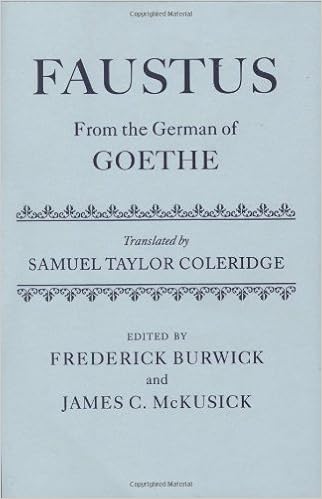
By Martin Heidegger, William McNeill, Julia Davis
Martin Heidegger’s 1942 lecture path translates Friedrich Hölderlin’s hymn "The Ister" in the context of Hölderlin’s poetic and philosophical paintings, with specific emphasis on Hölderlin’s discussion with Greek tragedy. added in summer time 1942 on the college of Freiburg, this direction used to be first released in German in 1984 as quantity fifty three of Heidegger's accumulated Works. Revealing for Heidegger’s considered the interval are his discussions of the which means of "the political" and "the national," within which he emphasizes the trouble and the need of discovering "one’s personal" in and during a discussion with "the foreign." during this context Heidegger displays at the nature of translation and interpretation. an in depth examining of the recognized refrain from Sophocles' Antigone, often called the "ode to man," is a key characteristic of the course.
Read or Download Hölderlin's Hymn "The Ister": Hölderlin's hymn "The Ister" (Studies in Continental Thought) PDF
Best World Literature books
The Conquest of New Spain (Penguin Classics)
Bright, robust and soaking up, it is a first-person account of 1 of the main startling army episodes in historical past: the overthrow of Montezuma's doomed Aztec Empire by way of the ruthless Hernan Cortes and his band of adventurers. Bernal Díaz del Castillo, himself a soldier lower than Cortes, offers a fascinatingly distinctive description of the Spanish touchdown in Mexico in 1520 and their amazement on the urban, the exploitation of the natives for gold and different treasures, the expulsion and flight of the Spaniards, their regrouping and eventual seize of the Aztec capital.
On the outbreak of the second one international battle Vladimir Nabokov stood near to wasting every thing over again. The attractiveness he had outfitted because the pre-eminent Russian novelist in exile used to be imperilled. In Nabokov and his Books, Duncan White indicates how Nabokov went to the United States and never in simple terms reinvented himself as an American author but additionally used the luck of Lolita to rescue these Russian books that have been threatened by way of obscurity.
Faustus From the German of Goethe Translated by Samuel Taylor Coleridge
The main paintings of German literature, Johann Wolfgang von Goethe's Faust (1808), was once translated into English by means of one in all Britain's such a lot able mediators of German literature and philosophy, Samuel Taylor Coleridge. Goethe himself two times spoke of Coleridge's translation of his Faust. Goethe's personality wrestles with the very metaphysical and theological difficulties that preoccupied Coleridge: the that means of the emblems, the obvious competition of theism and pantheism.
Gotthold Ephraim Lessing: His Life, Works, and Thought
Gotthold Ephraim Lessing (1729-1781) is the main eminent literary determine of the German Enlightenment and a author of ecu importance. His diversity of curiosity as dramatist, poet, critic, thinker, theologian, philologist and lots more and plenty else in addition to used to be resembling that of Voltaire, Diderot, and Rousseau, with all of whose rules he engaged.
Additional info for Hölderlin's Hymn "The Ister": Hölderlin's hymn "The Ister" (Studies in Continental Thought)
Rather than pondering it because the primary ki nd of essence ~ thirteen T lhe uncanny because the floor of humans [89- ninety/ seventy three belongi ng to humans. but even tho ugh we're trying to crrasp the uncanny extra decisively because the unhomely, we should simply fa ll ~rcy t~ the da1~ger of thjnking :his crucial trait of humans in a ~erely ne!! allve method. 1n accordance with the sound of the observe: mere not-be111gna~i1ely no longer being in the homely, an insignificant departing and breaking loose from the homely. And certainly, every little thing that ensues within the first strophe and antistrophe turns out to talk in want o f this perception o f the unhomely: Der fahrt a us auf d ie scha umende F lutHc vent ures citadel h o n the foa ming t ide- but this can be no mere homeless wandering round that basically seeks a situation so as then to desert it and take its excitement and delight in an insignificant touring round. The man or woman this is now not the adventurer who is still homeless because of his loss of rootedness. particularly, t he sea and the land and the desolate tract are these geographical regions that humans transfonn with all their skillfulness, use and make their very own, in order that they may possibly fi nd their very own area via such geographical regions. The homely is wanted and striven fo r within the violent job of passing via that that's inhabitual with admire to sea and earth, and but in such passage the homely is strictly no longer attained. If the unhomely one have been easily the mere adventurer, he couldn't also be Oetv6c;, uncanny, within the feel o f the frightful and robust : fo r the adventurer is at so much stra nge and fascinating, but doesn't atta within the better realm of the Oetv6v, to whose essence there belongs a countenurning that's enunciated i11 the center of the second one strophe ( I. 360): Uberall hinausfah rend untcrwegs und



